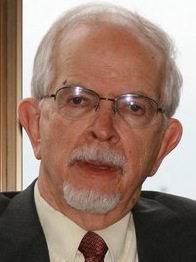This latest action comes after a series of far more damaging attacks affecting Palestine: Moving the U.S. embassy to Jerusalem, defunding UNRWA, the UN agency for the care of Palestinian refugees, and defending hospitals in East Jerusalem of $25 million.
This peace process began 25 years ago this week, Thursday, September 13, 1993.
Avi Shlaim, emeritus professor of international relations at Oxford University, wrote in the Guardian this week:
Twenty five years ago today [9/13/93], the Oslo accord was signed by Israel's prime minister, Yitzhak Rabin, and PLO chairman Yasser Arafat in the Rose Garden of the White House, with Bill Clinton acting as an enthusiastic master of ceremonies .
The PLO saw the Oslo accord as a vehicle to national self-determination in the territories occupied by Israel in the June 1967 war. But it was not to be. Israel used the accord not to end but to repackage the occupation.
The repackage at Oslo was always designed to fool the world into hopeful optimism, when from the outset, it was a shrewd act of evil that allowed Israel to move into the 21st century as a righteous partner for peace.
Schlaim asks: why did the Oslo peace process fail?
There are two radically different explanations. Netanyahu maintains that the Oslo accord was doomed to failure from the start because it was incompatible with Israeli security and with the historic right of the Jewish people to the whole land of Israel, which includes Judea and Samaria, the biblical names of the West Bank. My view is that the Oslo accord was a modest step in the right direction, but it was killed when the rightwing Likud party returned to power under Netanyahu.
As leader of the opposition, Netanyahu spearheaded the attack on the Oslo accord when it was first presented for a vote in the Knesset. He accused Rabin of being a worse leader than Neville Chamberlain, because Chamberlain put another nation in danger, whereas Rabin did it to his own nation.
Another major landmark on the road to peace was the Oslo II accord of September 1995. Netanyahu denounced it as a surrender to terrorists and a national humiliation, and he vowed to bring down the government. He gave an inflammatory speech from the grandstand of a mass rally in Jerusalem in which demonstrators displayed an effigy of Rabin in SS uniform. And he continued to play an active part in a campaign of incitement against the Labour government. Rabin was assassinatedin November 1995.
One incident had a parallel in the recent U.S. funeral of Senator John McCain in Washington. After her husband was assassinated in 1995, Leah, Rabin's widow, refused to shake Netanyahu's hand when he came to console her at her husband funeral.
Hand-shaking was not an issue at McCain's 2018 funeral. He had left word that President Trump was not to be invited to his service.
I was fortunate in those pre-Oslo days to have made friends with two of the Norwegians involved in the Oslo Accord peace team, Marianne Heiberg and Johan JÃ �rgen Holst, a husband and wife diplomatic team. My wife and I had met them at a conference in Aspen, Colorado.
I realized something was developing when I encountered Marianne Heiberg at breakfast at the American Colony in Jerusalem. She was tight-lipped, of course.
After the Oslo Accord was signed and her husband died at an early age, Marianne moved to Jerusalem with her young son, where she worked as a United Nations representative. We met for dinner on several occasions and recalled again how she and her late husband had been cautiously hopeful that the Oslo Accord would work.
It did not work to Palestine's best interests, because one party to the Accord, Israel, had a different goal from the outset.
Nor could anyone have predicted that the U.S. President who would learn of a repackaged Oslo Peace Accord 25 years later, would be Donald Trump. Which is precisely why it cannot be said too often: Elections have consequences.
(Note: You can view every article as one long page if you sign up as an Advocate Member, or higher).





